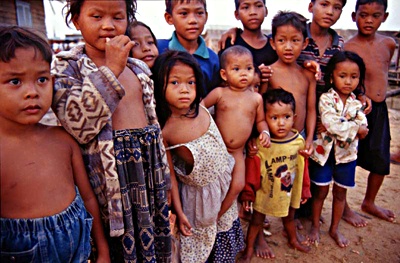All Nonfiction
- Bullying
- Books
- Academic
- Author Interviews
- Celebrity interviews
- College Articles
- College Essays
- Educator of the Year
- Heroes
- Interviews
- Memoir
- Personal Experience
- Sports
- Travel & Culture
All Opinions
- Bullying
- Current Events / Politics
- Discrimination
- Drugs / Alcohol / Smoking
- Entertainment / Celebrities
- Environment
- Love / Relationships
- Movies / Music / TV
- Pop Culture / Trends
- School / College
- Social Issues / Civics
- Spirituality / Religion
- Sports / Hobbies
All Hot Topics
- Bullying
- Community Service
- Environment
- Health
- Letters to the Editor
- Pride & Prejudice
- What Matters
- Back
Summer Guide
- Program Links
- Program Reviews
- Back
College Guide
- College Links
- College Reviews
- College Essays
- College Articles
- Back
Child Safety: What Can Be Done?
Child Safety is an ongoing issue that must be dealt with. Children all over the world are being abused, kidnapped, and killed every day. According to a study done by UNICEF, 29,000 children die each day from preventable causes. Although most of the danger seems to be concentrated in third world countries, this is not an excuse for us in first world countries to ignore the rising problem. Children are our future global leaders, yet many don’t have access to water, food, or safety. How can we set up a system in which child safety is our top priority?
These thoughts seem to run through my head constantly. I love children and am very passionate about providing them with the freedom and safety they deserve. In April 2013, I was preparing for a humanitarian expedition to Fiji and Tonga. A group of twenty high school students and I were going to build a house for hurricane survivors. Through this experience, we were all going to learn the true meaning of service and hard work.
I knew I wanted to complete my Eagle Scout project on the trip, but I did not know exactly what to do for my project. After pondering different options, my family suggested that I create identification cards for school children. These cards would include the picture, name, parent’s names, and physical attributes of the child. With these cards, parents would be able to give them to the police if the child is lost or kidnapped. Tonga is a very poor country with a GDP of only $2,200 per capita. Many families do not have pictures of their children. By creating these cards, police would be able to know exactly who they are trying to find. I knew that this was the most influential choice of projects, and I immediately began working on it.
Over the next several months, I spent hours contacting trip leaders in Tonga, researching schools, budgeting necessary supplies, and getting approval from the Eagle Board. Although creating ID cards felt like a worthy undertaking, it was difficult to consistently feel motivated to finish the project. The preparation was time-consuming, but I knew that this project could potentially save the lives of many children, so I kept pushing forward.
Upon arriving in Tonga, I was able to travel with a group of volunteers to a small community school. After meeting the teachers and students, we all began working. Participants weighed all thirty children, measured their height, took their picture, and recorded noticeable physical features. Although we were in a hectic environment, nothing could suppress the joy received from seeing these children smile. After printing and laminating the cards, we personally handed out one card to each child. No words can describe seeing them light up at receiving a picture of themselves.
At that moment I realized that serving others is so much more than ‘giving a helping hand.’ Through my service in Tonga, I changed as a person. I became more focused, kind, and willing to help others in need of love and assistance. Because of this experience, I have decided to devote my life to international humanitarian service. I hope to work with non-profit organizations directing work projects in third world countries as a future career. Through helping others, our eyes are opened to the struggle and pain around us. The world is our community, and it is our duty to do all that we can to relieve global pain. In the process of helping others, we ourselves will change for the better.

Similar Articles
JOIN THE DISCUSSION
This article has 0 comments.
